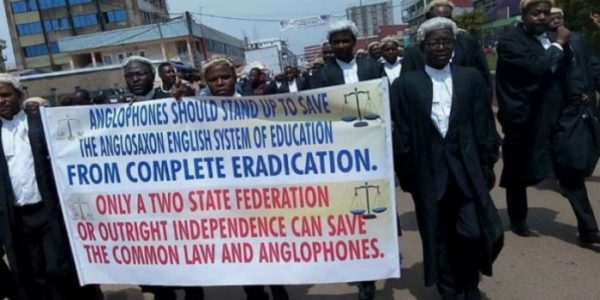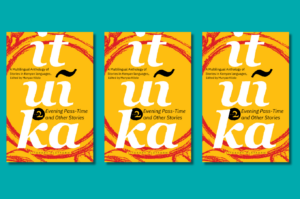
Chimamanda Adichie has added her voice to Cameroon’s Anglophone Crisis, following efforts by Cameroonian novelists Imbolo Mbue and Patrice Nganang. Last year, Mbue wrote an essay for The Guardian UK while Patrice Nganang was arrested by the Cameroonian government, with Cameroonian writers and PEN America calling for his release.
Adichie’s contribution comes in an op-ed in The New York Times. “This is a story about an African nation’s fatal disregard of its minority population,” it begins. “It is also a story about the muddled sludge of colonial history.”
The piece follows the experience of an Anglophone Cameroonian friend forced to seek asylum in the U.S. due to the ongoing conflict between the country’s Francophone majority and Anglophone minority. The conflict in Cameroon, dubbed “the Anglophone Crisis” by the media, has resulted in hundreds of deaths and the displacement of tens of thousands of English-speaking Cameroonians, many of whom have sought asylum in neighboring countries.
Against the glare of state violence in Cameroon, the movement for independence, which had been considered fringe, suddenly seemed legitimate, writes Chimamanda Ngozi Adichie. https://t.co/XDWV5XBi4C
— New York Times Opinion (@nytopinion) September 16, 2018
In her account of her friend’s experiences of discrimination and state-sanctioned violence, Adichie also incorporates a brief post-independence history of Cameroon, including its bilingual origins, its systematic privileging of Frenchness and Francophone Cameroonians, and its disenfranchisement of English-speakers. The result, writes Adichie, is a “messy and inchoate” independence movement that has steadily gained traction among the country’s Anglophone minority.
Ultimately, in drawing attention to and condemning the violence in Cameroon, Adichie’s argument develops from a denunciation of the Cameroonian government’s “fatal disregard” for its English-speakers to vocal support for the Anglophone independence movement. “Most Anglophones had only demanded autonomy,” she writes, “but again in the glare of state violence, the movement for independence, which had been considered fringe and insignificant, suddenly seemed legitimate.”
Adichie’s involvement in this is a welcome and helpful one.
Read the full op-ed HERE.
We covered Imbolo Mbue’s essay in The Guardian HERE.
We covered Patrice Nganang’s arrest HERE and his experience at Kondengui Central Prison HERE.
Read more on Cameroon’s Anglophone crisis HERE.









COMMENTS -
Reader Interactions